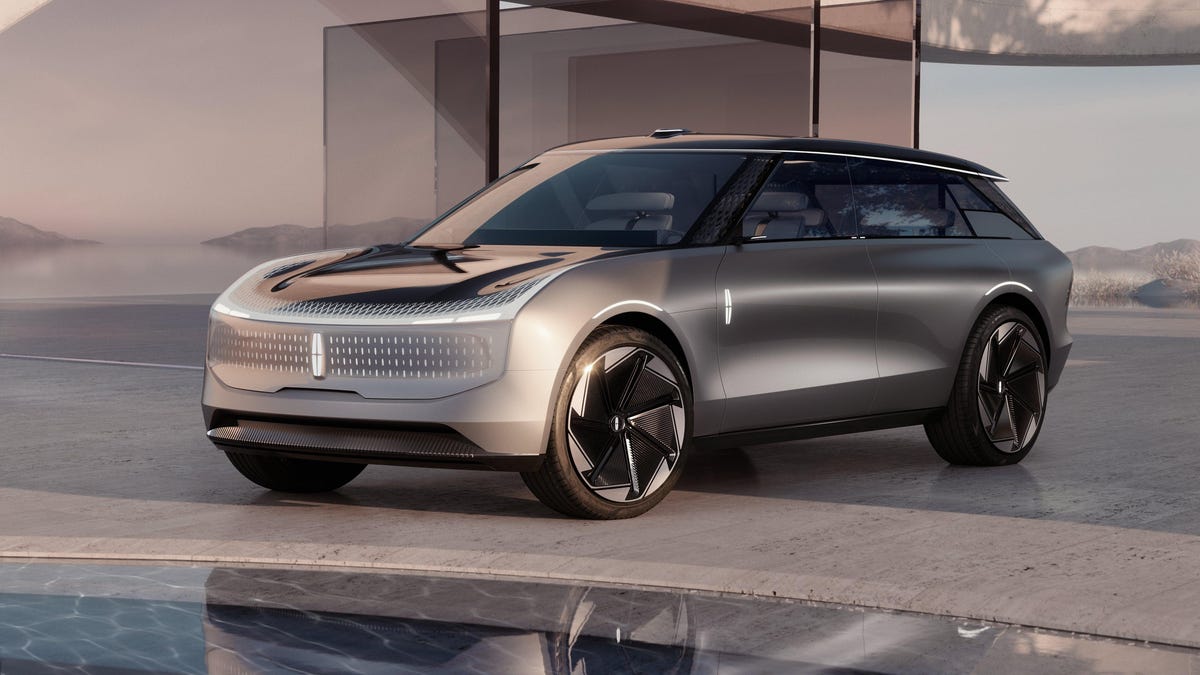Ford CEO Jim Farley Thinks the Cadillac Lyriq Is Boring

Lincoln Star ConceptImage: Lincoln
The Cadillac Lyriq has proven to be popular with customers so far. The EV hasn’t even hit showrooms yet, and it’s sold out. But not everyone is smitten with it. In an interview with Newsweek, GM’s crosstown rival Ford’s CEO Jim Farley had something to say about the Lyriq. He also wants everyone to look to China to see the future of the Lincoln brand.
Mercedes-Benz Twin-Turbo V8s Are Back!
While Lincoln keeps talking about its EV plans, nothing from the brand has materialized yet. Earlier this year, sources close to the brand said we can expect to see five all-electric models from the brand by 2026. That’s just four years away. And while its rival Cadillac will have its Lyriq on sale way before then, the most we’ve gotten from Lincoln is a concept car that’s supposed to “set the stage” for what we can expect from its EV. Whatever that means.
While Lincoln is working on its EVs, Jim Farley isn’t too impressed with the Lyriq. From what he said to Newsweek, he doesn’t think Cadillac went far enough with its design. Because apparently, EVs need to look like something different because they’re an EV.
“We wouldn’t do the product that Cadillac is showing [Lyriq]. We wouldn’t do it. Nothing against them, it just doesn’t fit our brand. It’s not far enough. It has a traditional hood, looks a lot like an ICE product… We want people to feel that electric excitement,” he said to Newsweek.
2022 Lincoln ZephyrImage: Lincoln
G/O Media may get a commission
Unfold your phone’s potential
The Z Fold4 is Samsung’s premiere Galaxy smartphone, featuring a 6.2″ cover screen that unfolds to a wide 7.6″ display on the inside as well as an under-display camera. Ordering one today will grant you $150 in Samsung credit to be put toward additional accessories.
Farley also wants people to look at what it’s doing in China if they want to see the future direction of the brand. Like the not for the U.S. Zephyr that was recently launched in China. With its blend of tech, smart surfaces, and comfort, Farley thinks Americans will soon begin using their vehicles the way the Chinese do, as a place to “transition”.
In China, people are in their cars for non-motion a lot. They use that time for transitioning. Life in China is pressure-filled. You have three generations, often in the same house. Lots of pressure to succeed. And those transition moments between work and home and home and work are really important.
We’re seeing more and more people spend time in their car but not driving. I think the same thing is going to happen in the U.S. You know, with autonomy comes the ability to do productivity in your car. You can leave for work an hour later. You can leave work an hour earlier. Your first and last meeting can be in your car.
When you do that, ETAs are going to be really important and you’re going to want to take the long way home because you have an hour meeting and you only have a 30-minute commute and you don’t want to sit in your driveway while you’re having your meeting.
Farley also has some rather.. interesting ideas regarding software. He thinks this is the key to luxury and electrification. He even went so far as to say the future isn’t trim levels, but “unlocking superior levels of luxury.” That sounds like fancy CEO speak for subscription-based features. He used the Apple Watch as an example.
Look, we’re both wearing Apple Watches,” Farley said, holding up his wrist, “We probably love our analog watches, but what makes a premium Apple Watch or iPhone? It’s not the physical form. When we go digital the ‘premiumness’ comes from different things rather than the physical body structure. It will come from software. So, everything has to be impeccably done, and done within your narrow brand.
Now it’s going to be our software, our autonomous features. Customers are wealthier in Lincoln so yes, I’m going to push our team saying, ‘Yes, I want our most advanced partial autonomy system in a Lincoln. I want the very best display technology, the best integration of all of this complicated information coming into the car now.’ … The Lincoln team is going to have to integrate those things to make them so seamless that it’s not a problem for customers.
There sure are a lot of interesting ideas for Lincoln but nothing to show for it yet. Look for those Lincoln EVs sometime in the next few years.


